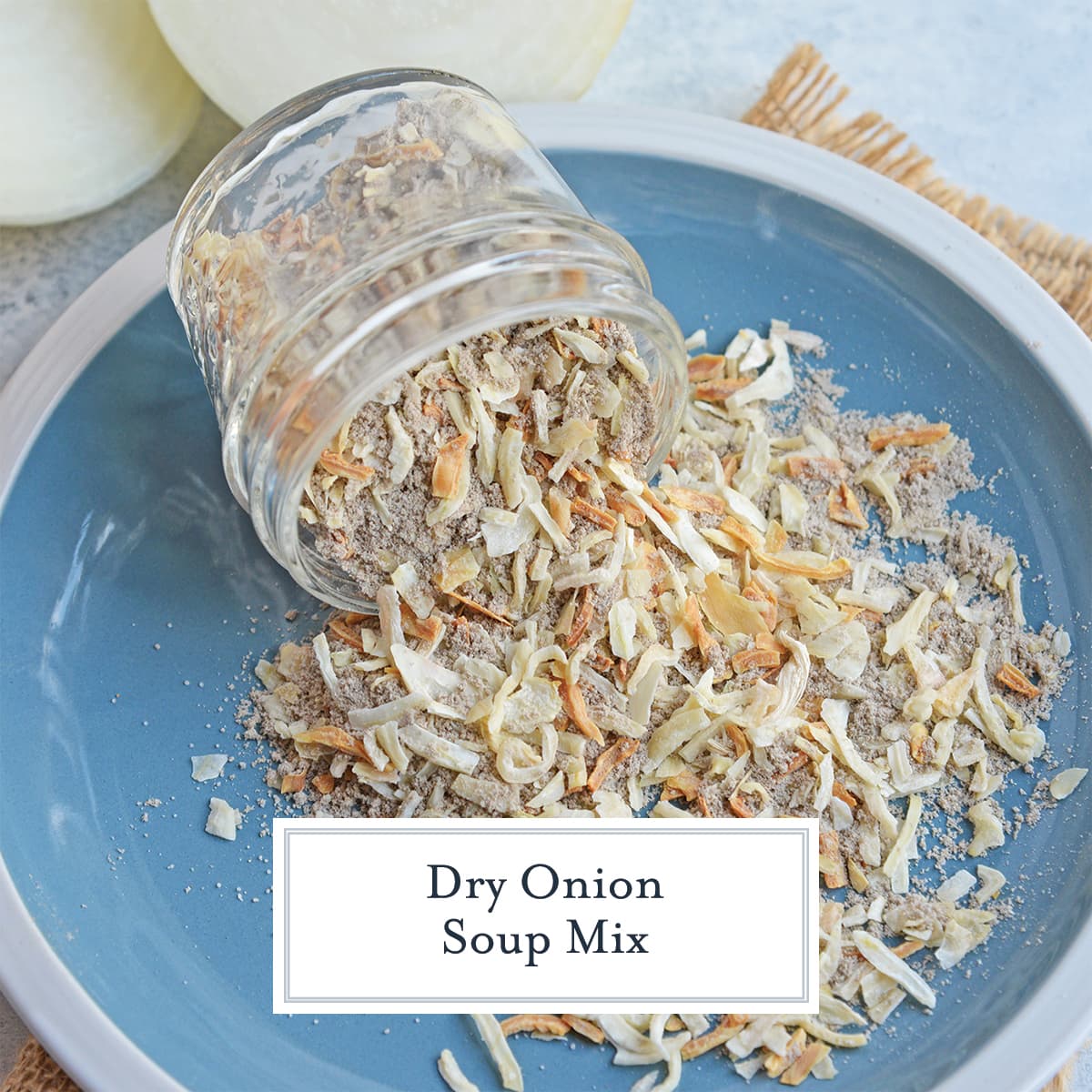Onion Soup Mix: History, Health Benefits, and Best Brands Reviewed
Onion soup mix traces its roots to French onion soup, a staple in French cuisine. French onion soup, known for its rich broth and caramelized onions, became popular in the 18th century. This dish reflected both the culinary traditions and resourcefulness of French culture. It utilized simple ingredients like onions and beef stock, making it accessible and flavorful.
Evolution into a Commercial Product
The transition from homemade to commercial onion soup mix began in the mid-20th century. In 1952, Lipton introduced the first powdered onion soup mix, revolutionizing convenience cooking. This product gained immense popularity in the United States, enabling home cooks to prepare a range of dishes quickly. Today, onion soup mix is a pantry staple, used not only for soups but also as a seasoning in dips, sauces, and casseroles, extending its versatility far beyond its original intent.
Key Ingredients in Onion Soup Mix
Understanding Dehydrated Onion
Dehydrated onion forms the core of onion soup mix. During the dehydration process, the moisture is removed, preserving the onion’s flavor and nutritional value. These dried onions rehydrate when combined with liquids, releasing their distinct aroma and taste. You get the essence of fresh onions without the effort of chopping and cooking.
Additional Spices and Flavorings
Additional spices and flavorings contribute to the complexity of onion soup mix. Common add-ins include:
- Salt: Enhances and balances flavors.
- Sugar: Adds a slight sweetness to offset the onion’s sharpness.
- Garlic Powder: Provides an extra layer of savory taste.
- Parsley: Adds a subtle herbaceous note.
- Paprika: Introduces a touch of smokiness.
These elements work in harmony, creating a versatile mix that elevates soups and other dishes.
Culinary Uses of Onion Soup Mix
Classic Onion Soup Recipe
Combine water, beef broth, and onion soup mix in a pot. Bring it to a boil, then reduce to a simmer for 15 minutes. Stir until the mix is fully dissolved. Serve hot, topped with a slice of baguette and melted Gruyère cheese. This method delivers a rich, umami flavor, making an easy and delicious comfort food.
Creative Cooking Ideas Beyond Soup
Meatloaf: Combine onion soup mix with ground beef, breadcrumbs, eggs, and ketchup. Mix well, then shape into a loaf and bake at 350°F for 1 hour. This blend enhances the meatloaf’s savoriness.
Roasted Vegetables: Toss your choice of vegetables (e.g., carrots, potatoes, and zucchini) with olive oil and onion soup mix. Roast at 425°F for 25-30 minutes. The mix imparts a deep, flavorful coating.
Dip: Mix onion soup mix into sour cream and let it chill for at least 30 minutes. Serve with chips or fresh vegetables. This creates a quick, tasty dip perfect for gatherings.
Burgers: Incorporate onion soup mix into ground beef before forming patties. Grill them to your desired doneness. This addition infuses the burgers with a delightful onion flavor.
Casseroles: Stir onion soup mix into casseroles like green bean or potato. Bake according to recipe instructions. This step enhances the overall taste profile with minimal effort.
Health Considerations
Nutritional Content
Onion soup mix contains essential nutrients but often has high sodium levels. One packet (28g) typically includes:
- Calories: 80
- Total Fat: 0g
- Saturated Fat: 0g
- Cholesterol: 0mg
- Sodium: 1,960mg
- Total Carbohydrates: 20g
- Dietary Fiber: 1g
- Sugars: 3g
- Protein: 2g
These values can vary, so checking labels is crucial. Dehydrated onions contribute vitamins like B6 and C and minerals like potassium, important for metabolic functions.
Common Allergens and Dietary Concerns
Onion soup mix often contains allergens like soy, wheat, or dairy. Always check the ingredient list if you have allergies.
- Gluten: Many mixes contain wheat, so choose certified gluten-free options if you have celiac disease.
- Soy: Look for soy-free varieties if you avoid soy products.
- Dairy: Some brands include milk derivatives; read labels carefully if you’re lactose intolerant.
Additionally, the high sodium content can be a concern for those managing hypertension or heart disease. Opt for low-sodium versions or make homemade mixes to control ingredients.
Top Brands of Onion Soup Mix
Comparing Price and Quality
When looking at established brands, price and quality vary significantly. Lipton, Knorr, and Trader Joe’s are popular options. Lipton’s Onion Soup Mix is well-known for its reliable quality and slightly higher price. Knorr provides a high-quality mix at a mid-range price point. Trader Joe’s offers a more cost-effective option without compromising much on taste. Brand loyalty often hinges on these price-quality dynamics.
Consumer Reviews and Ratings
Consumer reviews can help identify the best option. Lipton consistently receives high marks for flavor and versatility. Knorr’s mix often garners praise for its rich taste and balanced seasoning. Trader Joe’s brand, though less mainstream, earns commendations for its affordability and natural ingredients. Checking online platforms like Amazon and grocery store websites can give you real-world feedback and ratings for these brands.
Conclusion
Onion soup mix is a versatile ingredient that can elevate many dishes beyond traditional soups. While it offers convenience and rich flavors, it’s crucial to be mindful of its sodium content and potential allergens. Opting for low-sodium versions or homemade alternatives can be beneficial for those with dietary restrictions. Established brands like Lipton, Knorr, and Trader Joe’s each have unique strengths, from flavor to affordability. Ultimately, consumer reviews can guide you in selecting the best option for your needs. Enjoy the depth of flavor that onion soup mix brings to your culinary creations.






